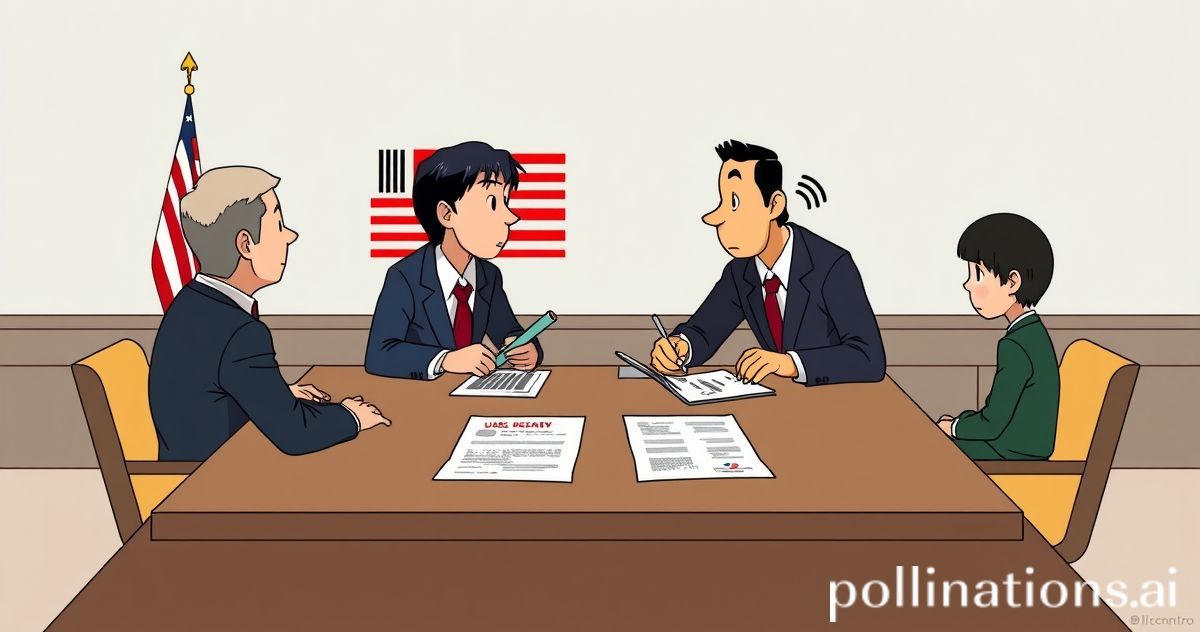US President Donald Trump officially notified South Korea on July 7th (local time) that he would impose a 25% reciprocal tariff on all Korean products starting August 1st. This measure comes after trade negotiations between the US and South Korea, which have been ongoing since April, failed to reach a conclusion, and is expected to have significant impact on the Korean economy and export industries.
Key Details of Trump's Tariff Letter
President Trump released a letter addressed to President Lee Jae-myung through his social media platform Truth Social. In the letter, Trump stated, "Our relationship has unfortunately been far from reciprocal," and announced that "starting August 1, 2025, we will impose a 25% tariff on all Korean products coming to the United States."
This tariff rate is identical to the 25% reciprocal tariff announced by President Trump on April 2nd. While Korea had received a 90-day grace period to conduct negotiations, the failure to reach an agreement as the deadline approached has resulted in this tariff notification.
Strong Warning Against Retaliatory Tariffs
Particularly noteworthy is Trump's stern position regarding potential Korean retaliatory tariffs. He warned, "If for any reason Korea decides to raise tariffs on the United States, whatever amount you choose to increase will be added to the 25% we impose."
Trump also addressed transshipment methods used to avoid tariffs through third countries, stating that such products would face "tariffs higher than 25%." This is interpreted as a move to prevent Korean companies from circumventing tariffs through indirect export routes.
Room for Negotiation Remains
However, Trump did not completely close the door to negotiations. He mentioned, "If you are willing to open trade markets that have been closed to the United States and eliminate your tariff and non-tariff barriers and policies, we might consider adjusting this letter."
This suggests that both countries have approximately three weeks until August 1st to engage in intensive negotiations to find ways to avoid the tariff implementation.
Korean Government Response
Following Trump's letter publication, the Ministry of Trade, Industry and Energy stated, "We view this as a de facto extension of the reciprocal tariff implementation grace period until August 1st, and will accelerate efforts to achieve mutually beneficial negotiation results to quickly resolve tariff-related uncertainties during the remaining period."
The government has already been preparing through the '7월 Package' tariff elimination negotiation plan, with Deputy Prime Minister and Finance Minister Choi Sang-mok and Trade Minister Ahn Duk-geun participating in Korea-US 2+2 trade consultations with US Treasury Secretary Scott Bessent and Trade Representative Jamieson Greer.
Economic Sector Concerns and Response Measures
This tariff notification is expected to impact all major Korean export sectors including semiconductors, automobiles, chemicals, and steel. Considering that the United States is one of Korea's largest export destinations, the ripple effects on the Korean economy would be substantial if the tariffs are actually implemented.
Industries are already preparing countermeasures. Large corporations are considering expanding production facilities within the United States, while small and medium enterprises are focusing on developing alternative markets.
Impact on Global Trade Order
This measure is expected to influence the overall global trade order beyond just US-Korea bilateral issues. President Trump has announced plans to notify a total of 14 countries, starting with Korea and Japan, about reciprocal tariff implementation.
Wall Street analysts view this measure as another "escalation for de-escalation" strategy, suggesting it's more likely a pressure tactic to secure negotiating leverage rather than actual tariff implementation.
Future Outlook
The upcoming three-week negotiation period will serve as a crucial watershed in determining the direction of US-Korea trade relations. The Korean government faces the challenging task of carefully reviewing US demands while securing both domestic industry protection and national interests.
The key question is to what extent market opening and non-tariff barrier elimination requested by the US must be achieved to avoid tariff implementation. It is crucial to find reasonable solutions that create win-win outcomes for both countries.

Original Korean article: https://trendy.storydot.kr/economy/trump-korea-25-percent-tariff-august-2025


0 Comments